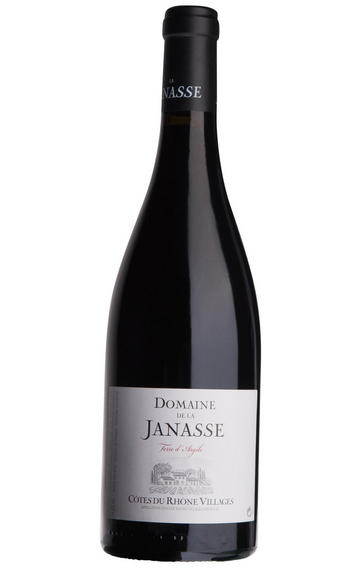
2013 Côtes du Rhône Villages, Terre d'Argile, Domaine de la Janasse
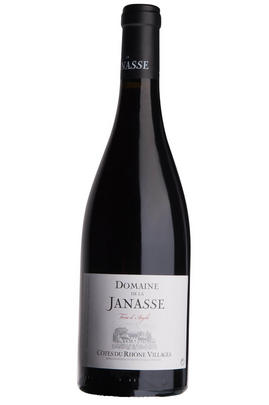
About this WINE
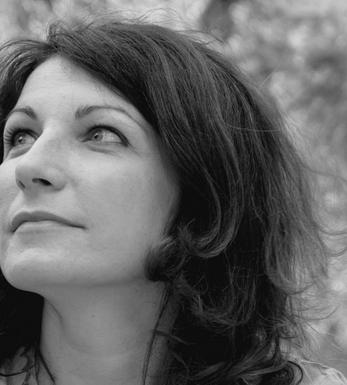
Domaine de la Janasse
Brother-and-sister team Christophe and Isabelle Sabon continue to work wonders at Janasse – a domaine founded by their father, Aimé Sabon, in 1973. They now farm around 90 hectares, 18 of which are in Châteauneuf-du-Pape. These are dotted across numerous plots in the northeast of the appellation, in the commune of Courthézon, where the soils are more sandy and therefore much cooler. They also have a few parcels on the famous, clay soil plateau of La Crau. The grapes are largely de-stemmed; concrete tanks are used for the Grenache and old oak for the Syrah and Mourvèdre. In other words, everything is fairly traditional. While they have been farming largely in accordance with organic principles for years, they are now undergoing full conversion to organic and expect to gain certification in 2024.
The domaine sadly suffered terribly from frost in 2021, reducing their output by 45% (and up to 80% for their Vin de Pays wines) – it is the siblings’ smallest vintage yet. They are however pleased with the quality, and they highlight its concentration and freshness.
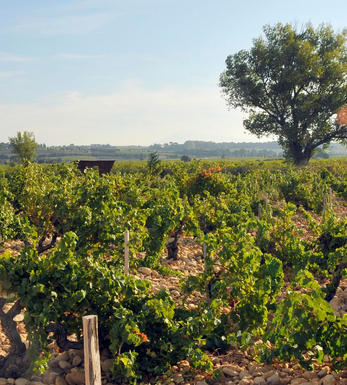
Côtes du Rhône
Côtes du Rhône, located in southern France’s Rhône Valley, is one of the country’s largest and most well-known wine appellations. The region is renowned for producing a wide range of high-quality wines, with vineyards extending from just south of Lyon in the north to Avignon in the south, covering both banks of the Rhône River.
Côtes du Rhône is celebrated for its wide array of red and white grape varieties. The primary red grape varieties include Grenache, Syrah, Mourvèdre, and Cinsault, while the main white grape varieties consist of Viognier, Marsanne, and Roussanne.
The region is divided into several appellations, each with distinct characteristics and regulations. The hierarchy ranges from the broad Côtes du Rhône appellation to more specific and prestigious sub-appellations like Côtes du Rhône Villages and Crus such as Châteauneuf-du-Pape, Gigondas, and Hermitage.
The region benefits from a diverse terroir, contributing to the different wine styles. The northern part has a continental climate, while the southern portion enjoys a Mediterranean climate, which plays a vital role in grape ripening and flavour development.
The red wines are highly regarded for their rich and robust flavours. They often exhibit notes of dark fruits, herbs, spices, and distinctive peppery quality, especially in the Syrah-dominated wines from the northern Rhône.
The white wines are typically aromatic and elegant, with flavours of stone fruits, floral notes, and hints of mineral complexity.
Côtes du Rhône also produces excellent rosé wines, which are refreshing and perfect for warm weather enjoyment.
Winemaking in Côtes du Rhône has a long history from ancient times. The region preserves a combination of traditional methods and modern techniques, allowing winemakers to express the unique characteristics of their terroir.
Côtes du Rhône wines are versatile and pair well with a wide range of dishes, including roasted meats, hearty stews, grilled vegetables, and cheeses.
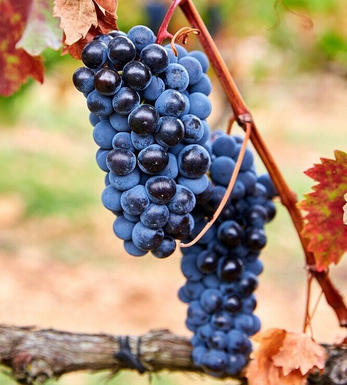
Southern Rhône Blend
The vast majority of wines from the Southern Rhône are blends. There are 5 main black varieties, although others are used and the most famous wine of the region, Châteauneuf du Pape, can be made from as many as 13 different varieties. Grenache is the most important grape in the southern Rhône - it contributes alcohol, warmth and gentle juicy fruit and is an ideal base wine in the blend. Plantings of Syrah in the southern Rhône have risen dramatically in the last decade and it is an increasingly important component in blends. It rarely attains the heights that it does in the North but adds colour, backbone, tannins and soft ripe fruit to the blend.
The much-maligned Carignan has been on the retreat recently but is still included in many blends - the best old vines can add colour, body and spicy fruits. Cinsault is also backtracking but, if yields are restricted, can produce moderately well-coloured wines adding pleasant-light fruit to red and rosé blends. Finally, Mourvèdre, a grape from Bandol on the Mediterranean coast, has recently become an increasingly significant component of Southern Rhône blends - it often struggles to ripen fully but can add acidity, ripe spicy berry fruits and hints of tobacco to blends.


Buying options
Add to wishlist
Description
This wine is sourced from vines just to the north of Courthézon and located literally a pudding stone’s throw away from Châteauneuf-du-Pape itself. As the name suggests there is a significant swathe of red clay in the vineyards, the encépagement of which is shared equally between Grenache, Syrah, Mourvèdre and Carignan. The wine marries spicy and savoury notes with very pure and ripe, dark-fruit characteristics.
Simon Field MW - Rhône Buyer
Christophe Sabon took us on the most fascinating vineyard tour in October 2014, underlining once again why he is held in such esteem in the appellation, and why Janasse make such widely praised wines across the spectrum. His sister, Isabelle, who operates the commercial side of the business, places 2013 stylistically between 2010 and 2011; she advises that the wines are a little more powerful than 2011 and perhaps a little rounder than 2010. Praise indeed, but a commentary that seems to be justified by the wines themselves. Still in barrel, the 2013 Côtes du Rhône Villages Terre d’Argile offers sweet cassis, ground herbs and spice in its medium-bodied, balanced and elegant personality. It has good concentration and depth, and will drink well on release. There was no Les Garrigues produced in the vintage.
Jeb Dunnuck - Wine Advocate Issue#215 Oct 2014
wine at a glance
Delivery and quality guarantee